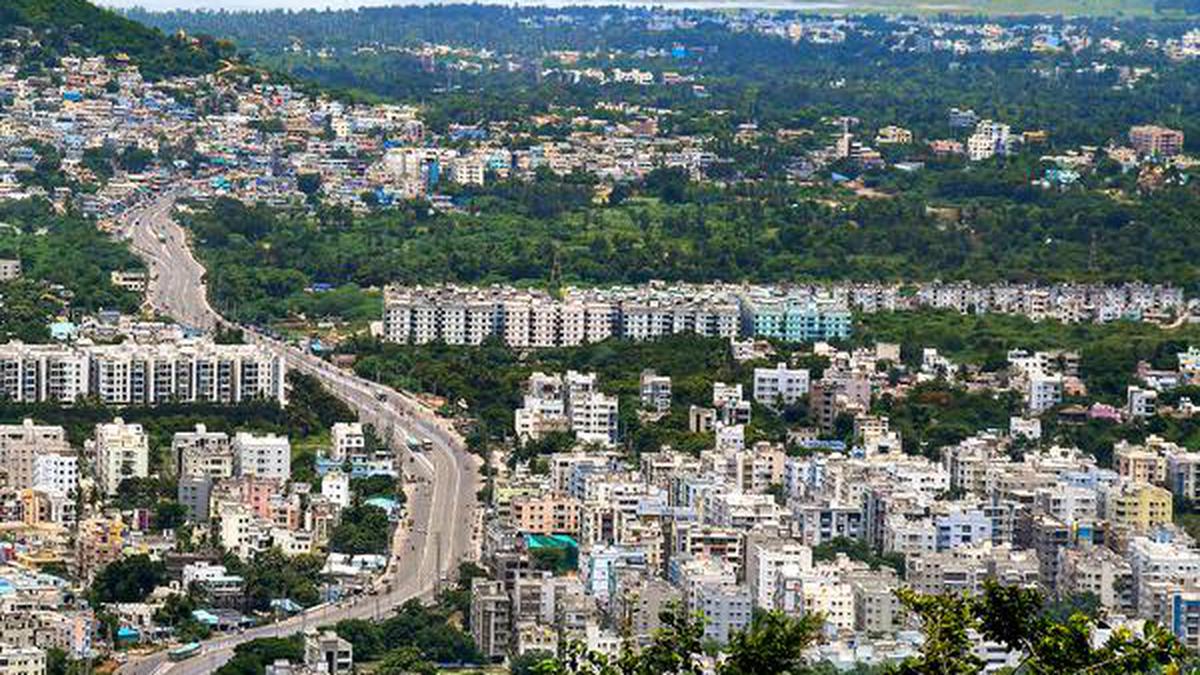
How Government Order no. 578 upturned the lives of people Premium
The Hindu
For 23 yrs, 25K families in Visakhapatnam's pancha gramalu have been denied justice. A 2000 G.O. declared the 9,069-acre area the property of a temple. Residents are unable to repair homes, transfer property, or raise money for their needs. Politicians have made empty promises. YSR Congress Party is ready to solve the issue, but court cases and political issues are delaying a resolution.
In the pancha gramalu or quintet of villages in Andhra Pradesh’s Visakhapatnam district, residents, women and men, many retired, go about their daily lives, sending grandchildren off to school, doing the daily chores and even celebrating festivals. But, they say, there’s a shadow hanging over them, with justice being denied to them for 23 years.
On August 19, 2000, Government Order no. 578—they are particular about the number because many have been under Central and State government employment—upturned their lives. Residents from Adavivaram, Venkatapuram, Vepagunta, Purushothapuram, and Cheemalapalli villages could no longer buy, sell, transfer, modify, or repair immovable assets, homes, small businesses, and the land is either left empty or used for cultivation. This impacted about 25,000 families residing in the villages, a green area surrounded by low hills, within 17 Greater Visakhapatnam Municipal Corporation (GVMC) revenue wards.
The G.O. declared that the ‘true’ owner of a 9,069-acre area was the Sri Varaha Lakshmi Narasimha Swamy temple in Simhachalam. Most of the land bought for the construction of houses or small businesses, like lodges and shops, was from other individuals in the 80s and 90s.
The temple is an important pilgrimage centre in the district and one of the 32 Narasimha pilgrimage spots in the State. The people affected are worshippers of the Vishnu avatar themselves and were required to apply for regularisation by paying 70-125% of the market value of their respective properties. Payments were to be made in favour of Sri Varaha Lakshmi Narasimha Swamy Vari Devasthanam, the principal deity of Simhachalam. This amount would legitimise their property ownership, now deemed illegal.
Behind the G.O. was the government of N. Chandrababu Naidu, the current national president of the Telugu Desam Party (TDP).
A day after the G.O. was issued and the residents in the five villages sensed a threat from both the government and temple authorities, they lost no time in forming an association named Samaikhya Praja & Rythu Samkshema Sangham (SP&RSS). They officially registered the society and elected an executive committee to challenge the G.O. in a court of law.
But, 2,700 families which did not join the society accepted the G.O. and regularised their properties by paying the amount. By November 2003, they had collectively paid about ₹70 crore. Later, another 750 families decided to accept the G.O. and shelled out about ₹2 crore. However, they could not get their properties regularised due to the delay in payment.

“Writing, in general, is a very solitary process,” says Yauvanika Chopra, Associate Director at The New India Foundation (NIF), which, earlier this year, announced the 12th edition of its NIF Book Fellowships for research and scholarship about Indian history after Independence. While authors, in general, are built for it, it can still get very lonely, says Chopra, pointing out that the fellowship’s community support is as valuable as the monetary benefits it offers. “There is a solid community of NIF fellows, trustees, language experts, jury members, all of whom are incredibly competent,” she says. “They really help make authors feel supported from manuscript to publication, so you never feel like you’re struggling through isolation.”

Several principals of government and private schools in Delhi on Tuesday said the Directorate of Education (DoE) circular from a day earlier, directing schools to conduct classes in ‘hybrid’ mode, had caused confusion regarding day-to-day operations as they did not know how many students would return to school from Wednesday and how would teachers instruct in two modes — online and in person — at once. The DoE circular on Monday had also stated that the option to “exercise online mode of education, wherever available, shall vest with the students and their guardians”. Several schoolteachers also expressed confusion regarding the DoE order. A government schoolteacher said he was unsure of how to cope with the resumption of physical classes, given that the order directing government offices to ensure that 50% of the employees work from home is still in place. On Monday, the Commission for Air Quality Management in the National Capital Region and Adjoining Areas (CAQM) had, on the orders of the Supreme Court, directed schools in Delhi-NCR to shift classes to the hybrid mode, following which the DoE had issued the circular. The court had urged the Centre’s pollution watchdog to consider restarting physical classes due to many students missing out on the mid-day meals and lacking the necessary means to attend classes online. The CAQM had, on November 20, asked schools in Delhi-NCR to shift to the online mode of teaching.









